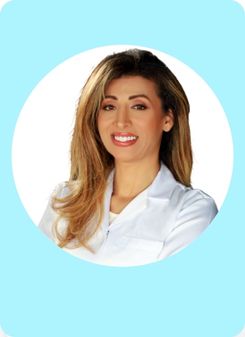What Are Eating Disorders?

Eating disorders are behavior-based intricate mental health condition or disorder that shoot from negative beliefs about food and body weight. People affected by eating disorders have an obsession with being thin, body shape and weight so there’s a strong emotional component that initiatives eating behaviors.
Eating disorders are multi-factorial, may be caused by several factors. These include genetics, brain biology and personality traits.
They are complex case and alarming! During and Post COVID-19 crisis combining puberty with high anxiety, a lack of structure, and constant pressure from increased engagement with social media were a rush of risk factors put on young people. That’s a perfect storm for developing an eating disorder.
The different types of eating disorders include
Anorexia nervosa disorder
The people suffering from Anorexia view themselves as overweight, even if they’re dangerously underweight. They tend to constantly monitor their weight, avoid eating certain types of foods, and severely restrict their calories.
We help and educate the person to slowly overcome the symptoms and gradually start to understand the importance of nutrients and their function in our body. Considering also the binge eating and purging type of behaviors.
Bulimia nervosa disorder
Individuals with bulimia eat large amounts of food in short periods of time, then purge. They fear gaining weight despite being at a normal weight, including binge eating they cannot stop eating until they get painfully full, then attempt to purge to compensate for the calories consumed and relieve gut discomfort. As such: behaviors include forced vomiting, fasting, laxatives, diuretics, enemas, and excessive exercise.
We help the person to overcome the weak self-esteem, fear of gaining weight, and more, we treat if they have any digestive tract problems such as gastro-intestinal, dehydration, gut related, hormonal issue and any nutrients deficiency related.
Binge Eating Disorders
They regularly and uncontrollably consume large amounts of food in short periods of time.
We treat at this level as overweight and obese people, educating them to understand the way food in-take and consulting and checking for any risk of medical complications.
Purging disorder
They often use purging behaviors, such as vomiting, laxatives, diuretics, or excessive exercising, to control their weight or shape.
We treat such disorder cases by educating them about how to overcome the consequences such as vomiting, use of laxatives and excessive exercise and other health issues.
Orthorexia nervosa disorder
They use unhealthy eating healthy foods based on quantity.
We treat them by screen them for nutrition deficiency as case-to-case level.
Eating Disorder Signs and Symptoms
- Trying new diets and food fads, such as no carbs, no meat, or no dairy
- Highly conscious of your body’s size, shape, and overall appearance
- Wants to eat alone
- Eating small amount of food at meal times
- Skipping meals altogether
- Dental issues, such as tooth sensitivity
- Noticeable weight gain or weight loss
- Dizziness, fainting
- Problems sleeping
- Muscle weakness
- Irregular menstrual periods
- Obsessed with physical appearance
- Wounds take longer than normal to heal
- Your body feels cold most of the time
- Lost control over your eating habits
HOW we can help to treat eating disorders
EATING DISORDER Services at Openminds Psychiatry, Counselling and Neuroscience Centre work on Multidisciplinary team approach, empower to treat the entire patient, provide comprehensive care and solutions. motivate and challenge the patients to create their own goals.
Our clinicians of expertise collaborate together to solve the consequences of (ED) eating disorders that covers Clinical Psychiatrist, Psychologist, Functional nutrition and clinical dietician departments.
- Nutrition counseling - clinical assessment
- Nutrition deficiency detection - to detect essential nutrients deficiency or any malnutrition
- Nutrition support - nutrition help according the deficiencies
- Appetite problems - check for mal-absorption of nutrients
- Nutrition support for fatigue, anxiety, depression - deficiency of nutrients related
- Supervise meal plan
Our Eating Disorder Specialists

Dr. Jane Darakjian
Clinical Dietitian| Nutrition Therapy& Lifestyle Medicine Therapy
If you are experiencing similar
problems please contact us
+971 52 861 7053
Call / WhatsApp Us
How Cognitive Behavior Therapy helps eating disorder
Know that for every person, it might not work the list of strategies to find help you get through eating disorders. Our expert Psychologists and Functional nutrition experts can help you learn to create a healthy relationship with food and your body. Our approach is integrative addressing the minds, body and emotional factors that can lead to eating disorders.
